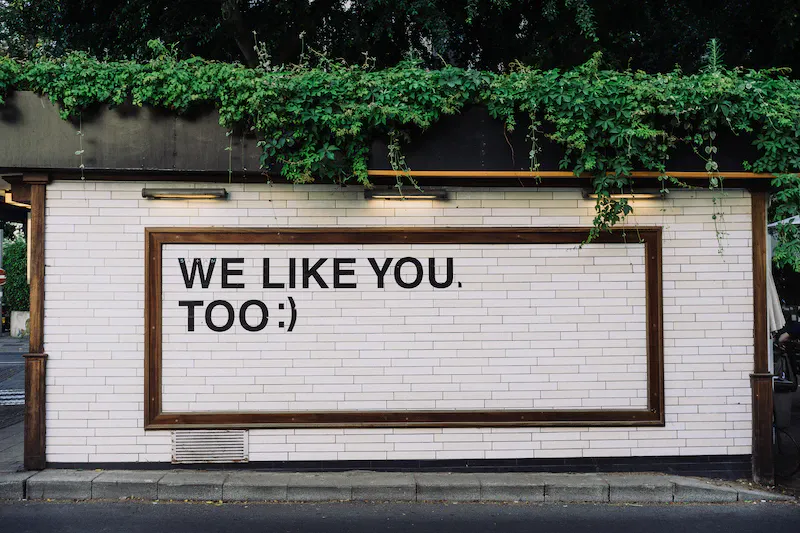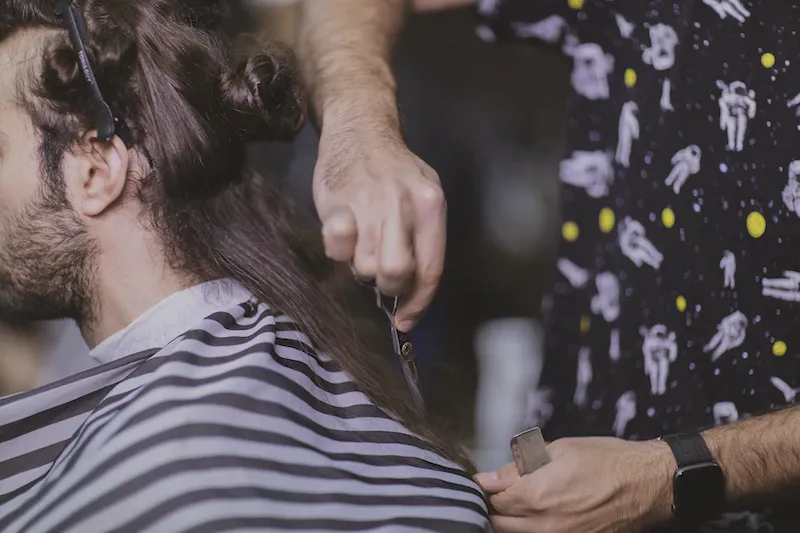The Insidious Ways Society Reinforces Gender Inequality

The First Secret I Ever Kept: A Lifelong Curiosity About Sex
As a young child, Sofia was curious about the word “sex,” which led her to look it up in the dictionary. Unfortunately, she was caught by her principal and shamed for her curiosity. This experience created the first secret she ever kept from her parents, and sparked a lifelong curiosity about sex.
Sofia’s experience is not unique. Many children are curious about sex from a young age, but are often shamed or silenced when they try to explore their curiosity. This shame is reinforced throughout our lives, through media that objectify women and a culture that refuses to see women as people.
Sofia also shares how this shame affects our understanding of pregnancy and childbirth. Pregnant women are often treated as community property, with strangers touching their bellies and offering unsolicited advice on their medical decisions. This disregard for bodily autonomy and privacy is a form of objectification that perpetuates the Willendorf effect, reducing women to their reproductive capabilities.
Overall, Sofia’s story highlights the importance of fostering a healthy understanding of sexuality from a young age. By destigmatizing curiosity and promoting comprehensive sex education, we can help break down the harmful patterns of shame and objectification that pervade our culture.
The Objectification of Women: Reinforced Through Every Aspect of Our Lives
The speaker in the video sheds light on how women are objectified and reduced to sexual objects in every aspect of our lives. Examples of objectification can be seen in advertisements where women are portrayed as sex objects to sell unrelated products or movies where women are depicted as only love interests. This objectification is further reinforced in schools that punish girls for their clothing choices, government’s refusal to punish rape, and even in the workplace where women’s intelligence and capabilities are often overlooked in favor of their appearance.
The media also plays a significant role in perpetuating the objectification of women, particularly in romantic comedies where women are often portrayed as either the sexy bombshell or the beautiful but demure woman who is worthy of love and marriage. Women are thus reduced to two roles, which are often incompatible with each other. The first role, the sexy bombshell, is to be consumed and forgotten, while the second role, the desirable but modest woman, is considered worthy of a man’s future babies.
The speaker notes that the objectification of women is harmful and insidious, building into a culture that refuses to see women as people. The objectification not only affects women’s self-worth and self-esteem, but it also contributes to the normalization of sexism and rape culture.
The Two Roles Women Are Told to Play in Romantic Comedies
Romantic comedies have long been a staple of Hollywood, but have you ever stopped to think about the roles women are typically assigned in these films? According to the speaker in the video, there are two kinds of women presented in romantic comedies: the sexy bombshell and the demure leading lady.
The sexy bombshell is typically portrayed as an object to be consumed and forgotten. She is “much too available” and is only meant to be a sexual conquest for the male lead. On the other hand, the demure leading lady is the woman our leading man falls in love with, despite not noticing her at first or not liking her if he did. She is desirable but modest and is therefore worthy of our leading man’s future babies.
The speaker argues that these two roles have a difficult time existing within the same woman. Women are told to be both sexually attractive and demure at the same time, a nearly impossible task. These limiting roles contribute to the objectification of women and perpetuate the idea that women are only valuable as love interests or baby makers.
This kind of messaging is not just limited to romantic comedies, but is reinforced through every aspect of our lives. The media, government, and even schools all play a role in perpetuating the objectification of women. It’s time to break free from these limiting roles and start valuing women for more than just their appearance or reproductive capabilities.
The Willendorf Effect: When Women Become Property of the Community
The Willendorf Effect refers to the ancient practice of women being viewed as property of the community rather than individuals with agency and autonomy. This practice has had a lasting impact on the way women are treated and viewed in modern society.
One example of the Willendorf Effect is the way women’s bodies are policed and scrutinized in the media. The media often portrays an idealized, unrealistic body type that reinforces the idea that women exist to be looked at and judged based on their appearance. This creates a toxic environment where women are objectified and their worth is reduced to their physical attributes.
Another example is the way women’s reproductive rights are often debated and legislated by mostly male politicians. This reinforces the idea that women’s bodies and reproductive capabilities are not their own, but rather belong to society as a whole.
The Willendorf Effect can also be seen in the way women are often blamed and shamed for sexual assault and harassment. Instead of holding perpetrators accountable, women are often told to change their behavior or dress in a certain way in order to avoid being assaulted or harassed.
Overall, the Willendorf Effect is a harmful practice that has perpetuated the idea that women are not individuals with their own agency and worth, but rather property of the community. It is important for society to recognize and challenge these harmful beliefs in order to create a more equitable and just world for all individuals.
Society’s Insistence That Women Exist Simply for Men’s Pleasure or for Reproduction
Throughout history, women have been seen as objects created solely for the pleasure of men. This idea has been reinforced through many aspects of our culture, including art, literature, and media. Women are often portrayed as sexual objects whose only value lies in their ability to please men.
This is evident in the way that women are often sexualized in advertisements, movies, and music videos. Women are often depicted as passive objects of desire, whose only purpose is to satisfy male sexual urges. This reinforces the idea that women are there solely for men’s pleasure and reduces them to mere objects.
Another way this idea is reinforced is through the societal pressure on women to have children. Women are often seen as incomplete or inadequate if they do not have children, as if their only purpose in life is to reproduce. This reduces women to nothing more than vessels for reproduction, further perpetuating the idea that their worth lies solely in their ability to please men and produce offspring.
The idea that women exist solely for the pleasure of men or for reproduction is harmful and limiting. It ignores the fact that women are individuals with their own wants, needs, and desires, and reduces them to mere objects. It’s important to challenge these ideas and work towards a more equitable society where women are seen as full and equal human beings.
Why Women’s Sexual Pleasure is Revolutionary and Scary
The idea of women experiencing sexual pleasure has long been taboo and even frightening to some. In many cultures, women are taught to prioritize their partner’s pleasure above their own, and even to suppress their own sexual desires entirely. In this way, the idea of women’s sexual pleasure is revolutionary because it goes against the social norms that have been established for centuries.
Additionally, there is a fear that if women were to fully hug their sexual desires, they would somehow lose their power or become uncontrollable. This fear is rooted in the belief that women’s sexuality is dangerous and must be controlled. The reality is that women’s sexual pleasure is just as valid and important as men’s, and denying women the right to experience it is a form of oppression.
The speaker in the video points out that historically, women have been punished for expressing their sexuality or even for being accused of it. This is because women’s sexual pleasure has been seen as a threat to the patriarchal system. When women are encouraged to prioritize their own pleasure and desires, it can be a radical act of resistance against the societal norms that have been imposed upon them.
Overall, it is essential to understand that women’s sexual pleasure is not something to be feared or repressed. Instead, it should be celebrated and prioritized just as much as men’s sexual pleasure. By doing so, we can work towards creating a society where everyone’s sexual desires and needs are valued and respected equally.
Everyone Plays a Role in Dismantling Systems of Inequality
The final point that was made in the video is that everyone has a role to play in dismantling systems of inequality. It’s not just up to women to fight for their own rights and equality, but it’s also up to men and people of all genders to be allies and actively work towards creating a more equitable society.
One way to do this is by educating oneself about the issues and being aware of the ways in which societal systems perpetuate inequality. This can involve challenging harmful language or behavior when it arises, supporting organizations and causes that promote gender equality, and being an active participant in advocating for change.
It’s important to recognize that the work towards equality is ongoing and that progress will not happen overnight. However, by working together and recognizing the role that each individual can play, we can create a more just and equitable society for all.
As one example from the video, the speaker discussed how she was able to learn and grow through conversations with friends who challenged her own beliefs and biases. By listening to and learning from each other, we can make progress towards a more equitable world.
Disrupting Patterns of Inequality: Worth the Trouble
In the final part of the video, the speaker encourages everyone to disrupt patterns of inequality, even though it may be difficult and uncomfortable. She argues that it is worth the trouble because a more just and equal world is possible if we all work towards it. Here are some key points she made:
- Change is hard, and it can be uncomfortable to challenge the status quo. However, we must be willing to disrupt patterns of inequality if we want to create a more just world.
- Disrupting patterns of inequality may require us to question our own beliefs and behaviors. We may need to challenge our own biases and prejudices.
- It’s important to listen to those who are marginalized and oppressed and to believe their experiences. We should work to increase their voices and support their leadership.
- We all have a role to play in dismantling systems of inequality. We can do this by being aware of the ways in which we benefit from privilege and by using our privilege to uplift others.
- We should also educate ourselves and others about the systems of oppression that exist in our society. This will help us to understand the root causes of inequality and to work towards systemic change.
Ultimately, the speaker believes that disrupting patterns of inequality is worth the trouble because it will lead to a more just and equitable world for everyone. While it may be difficult, it is necessary if we want to create a better future for ourselves and for future generations.
Conclusion
The issues surrounding gender inequality and the objectification of women are complex and deeply ingrained in our society. However, it is crucial to acknowledge and confront these issues to create a more equitable and just world for all individuals.
Throughout this post, we have explored various themes related to gender inequality, including the reinforcement of objectification through media and advertising, the limiting roles assigned to women in romantic comedies, and the history of women being treated as property of the community. We have also discussed the societal pressure for women to exist solely for men’s pleasure or reproduction, and the revolutionary and potentially scary nature of women’s sexual pleasure.
Despite the challenges and discomfort that may come with confronting these issues, it is worth the trouble to disrupt patterns of inequality. Everyone has a role to play in dismantling systems of oppression and promoting gender equality, whether it be through education, advocacy, or personal reflection and growth.
By working together and valuing the worth and agency of all individuals, we can move towards a society that is truly equitable and just. It is up to all of us to actively engage in this process and create a better world for ourselves and future generations.




